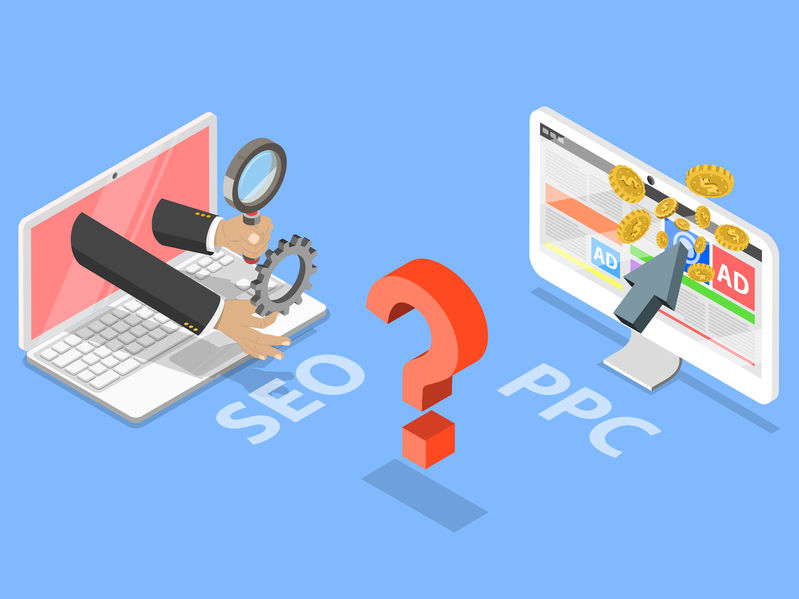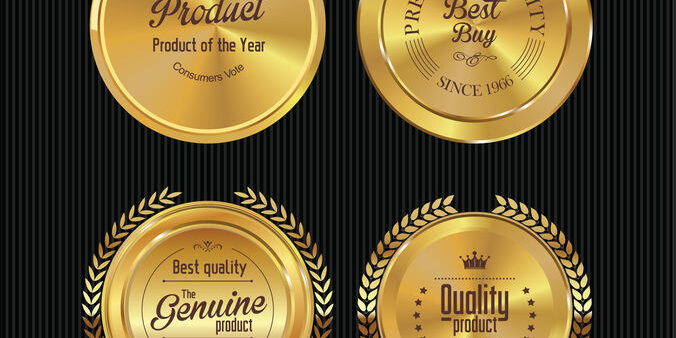Be Careful of your Affiliations
In my 20 years of business, I have always been honest and forthcoming with my advice, opinions and recommendations. I do not have a hidden agenda, besides offering the client the best service that they can afford.
In fact, my customizable marketing packages offer as much independence from my services to fit my clients’ budgets. To provide as many options as I can, I give the client the choice of training, consulting, or management of their content marketing, social media marketing, SEO or website content management; or a combination of each, to fit the needs of each client as well. For example, some clients request social media management or blog writing for three to six months, so they can learn my methods for them to replicate on their own for ongoing management. With no contracts, no commitments, it is up to the client if they want me to manage their marketing temporarily or long-term. It’s up to them and with no contracts or time limits, they have the freedom to choose.
In that vein, I also have chosen a long time ago, not to become a reseller of any product or pay for certifications or obscure affiliations to erroneously boost my trust and credibility, as some of my competitors have chosen to do. In this blog you will see that not everyone is what they say they are and that “not all that glitters is gold.” How can you know the validity of various badges on a vendor’s website are genuine? Are the badges just paid certifications or did they actually have to be earned with education, practice and various skillsets?
What is a Website Badge? Website badges are typically small graphics that contain a link to an associated website, which are mostly used for awards, validations, endorsements and accreditations. If the badge does not link anywhere, then it’s not a badge but a graphic on the site that has virtually no meaning, and could even be seen as misleading.
Let’s first talk about the most common badges and what they actually mean for those that claim to participate.
What is a Google Partner and What are the Requirements?
What is a Google Partner?
“Google Partners is a marketing program for advertising agencies or third-parties that manage Google Ads accounts on behalf of other brands or businesses. Achieving Partner status means that your company has demonstrated Google Ads skill and expertise, met Google ad spend requirements, delivered company agency and client revenue growth, and sustained and grown its client base. Partner status gives your company access to a number of benefits, including the Google Partner badge that can be shown on your website and marketing materials.”
– Google.com
A Google Partner is someone certified and trained specifically to run a business’ Google Ad campaigns. That doesn’t mean they understand or attempt to utilize organic SEO, it does not mean they implement SEO strategies on your website, it does not mean they teach SEO or they help business rank on SERP (search engine results pages) better than anyone else. They are just running ads and taking a percentage of that ad budget for their setup and management of your ads, as well as meeting current Google Partner program requirements (see below for a list of those).
“If a company claims that it is a Google Partner, this is probably true, however this status has no impact on organic search or SEO. Google Partners are certified for Adwords ONLY, which is Google’s paid advertising platform. That means they take the money you spend with them each month and invest a percentage of it into Google’s Pay-Per-Click advertising. So if someone says they are a Google Partner, read between the lines. They are speaking strictly about Pay-Per-Click advertising on Google Adwords and not about organic search rankings.” – Hubspot.com
What are the Requirements to be a Partner?
Becoming a partner does not come cheaply. The requirements until the end of 2020 are as follows:
- Meet a 90-day ad spend requirement of $10,000 USD across your managed accounts to show that your company has a healthy amount of activity. (In 2021, this 90-day ad requirement will go up to $20,000)
- A company needs 1 user certified in Google Ads who has admin or standard access to the company’s Google Ads manager account or any account linked to the company’s Google Partners registered Google Ads manager account. (In 2021, this will go up to 50% of eligible users, or staff with admin access to your Google Ads account) These are earned by Google Skillsop, a Google training platform to use Google’s tools and solutions. You can take these courses without being a Google Partner, by the way.
This ad spend requirement is a cause for hesitation in regards to my specific brand’s philosophy. Why? I don’t want to push a product that may or may not work for each client or that every client may or may not be able to afford. With a $10,000 spend requirement in just 90 days, (which will double in 2021), you can bet a company is going to do all that it can to meet that requirement to maintain it’s status.
Why Becoming a Google Partner does not Currently Meet My Clients’ Needs
Does having a Google Partner badge on my site mean that I offer better services to my client or understand Google organic or paid marketing better? The answer is NO. Does becoming a Google Partner encourage a hidden agenda of pushing me to sell more ad campaigns when that may not be the best marketing strategy for every client? The answer is … possibly.
My focus for the past 20 years has been on organic SEO, because of all the benefits over PPC ads. Here are some reasons I usually primarily focus on organic SEO:

- It’s FREE. Writing and publishing content to your website and digital media channels does not cost anything, unless you pay to have someone manage it for you or you pay your staff to implement. There are no residual, monthly fees to publish content and optimize your website. It just takes the time and effort utilizing the building blocks of SEO to improve your ranking on the SERPs.
- It’s Long-Lasting. Organic SEO have long-lasting and residual benefits. The backlinks, keyword-rich, unique and engaging traffic will bring traffic to your site in the days, weeks, months and years to come. Thus, the work in writing, editing and researching content and optimizing your website will bring long-term ROI. While PPC ads benefits stop as soon as you stop paying for them.
- It Builds Trust & Credibility in your Brand. 70-80% of all searchers ignore paid ads and focus only on organic results. Having your site in the organic results of a search can influence your perceived credibility with an audience looking for your products or services. That is why so many of us skip paid ads and choose to trust organic results by increased clicks.
- High Conversion rate. If done right, SEO can drive a 14.6% conversion rate, compared to traditional strategies (print ads or direct mail) which can drive a 1.7% conversion rate.
None of this is to say that PPC or SEM do not have benefits, especially to those with ecommerce websites. A good strategy, if the business can afford it, is a combination of both, but you can’t have SEM without SEO. Organic SEO is a priority for your online presence, SEM or PPC Ads are a bonus. So a well optimized website with sufficient, relevant backlinks, a well-organized content marketing strategy and digital media presence is the best digital marketing strategy . If there is a budget for PPC ad or Social Ads, then by all means, I would recommend it.
“PPC visitors to an ecommerce site are 50 percent more likely to make a purchase than organic visitors.”
– PPC Protect
So while any company can effectively setup and manage Google Ads, with or without a Google Partner badge, you should take time to review the credibility of the company, their reviews, and their past results. The Google Ads manager should be able to explain their strategy, their process and layout a ROI of your Google Ad spend. Do you research and choose a PPC Manager carefully.
Does a Badge on their Website mean they are a Google Partner??
I recently asked Google Ads Community for help in verifying a local so-called Google Partner. Since I can’t click on any of their badges, how would I know if the badge is genuine? This was their response:
“Sadly there is no longer a public directory of Google Partners that you can use to check them. On the website of the agency that says they’re a partner, they are supposed to publish their Partner badge. When you click it, you should be taken to a page with an address that begins https://www.google.com/partners/agency?id=. If there’s an image with no such link, do not trust them.” – Jason King, Gold Product Expert, Ad Grants Certified Professional

Currently, since there is no list of Google Partners on https://google.com/partners to verify if they are truly a Google Partner, so you must rely on their linked badges (and be able to click on the badge to see their Google Agency listing). According to the Google Ads Terms of Service they are allowed to use a static badge but ONLY on marketing materials and NOT on their website. If they are using a static (meaning you can’t click on it) “Google Partner” badge on their website, then don’t trust them.
“The Google Partner badge shows that specific Partners have passed Google Ads product certification exams and are up to date with the latest product knowledge. In other words, they earned it.”
– Google.com
If they are TRULY A LEGITIMATE and CURRENT Google Partner, they will be using a Dynamic Badge on their website. Period, end.
“The dynamic badge shows your company’s name and specializations when someone hovers over the dots in the right corner. The dynamic badge must be used on your website and the additional domains that are listed on your Partners company profile. You’ll add the badge to these websites using a code snippet.Partners only looks for the unique code snippet — and not any other code that may be used on your site — when displaying the badge.”
Google.com
If you don’t see the hover with the three dots that connect to a page that verifies they are a Google Partner to a link that looks like “google.com/partners/agency?id=123456789” – then THEY ARE NOT A GOOGLE PARTNER!!! If they are, then they are not following Google Partner Program’s Terms of Service, which I highly doubt. If you are a Google partner, you are going to be proud to link to your Agency page on Google.com with your list of certifications. So BUYER BEWARE!!
*If you are unsure, ask the company to send you to their current Google.com agency page link, which will show their certifications similar to this one: https://www.google.com/partners/agency?id=3936990182
Are they Really a WordPress Expert?
If you see this badge … RUN!! I have seen this badge on various web developers’ websites and thoroughly searched the internet for what it is, who is issuing it and what the requirements are, without success. So I wrote WordPress.org to find out, and here’s their reply:
“WordPress has no certification system, so this is something they’ve made up on their own, along with all the other certifications on that page. (you’ll notice the Google partner is an image, and not the official partner badge which would show certifications when you hover over it as well). As noted by the WordPress Foundation trademark policy; “[…] and they cannot use them in any way that suggests an affiliation with or endorsement by the WordPress Foundation or the WordPress open source project.” (This has been reported to the Foundation, and they will look into the use.)”
– Marius L.J., Senior developer with a WordPress agency in Norway
What is a Google Site Kit Developer??
Site Kit is a WordPress plugin that simplifies some Google-related tasks such as connecting to Analytics, Search Console etc—see https://sitekit.withgoogle.com/. This is not a badged program but a plugin that some developers choose to use on their clients’ websites. Using this as a badge causes confusion and is misleading. Imagine me using a badge for every plugin that I recommend and use for clients!
The Takeaway?
Be careful of who you choose to manage your web design, content management, content marketing, and SEO and SEM Marketing. Be careful of false claims, misleading affiliations and certifications, especially when these are paid marketing ploys or in some cases, just not true. A graphic on a website does not mean much if you cannot click it to verify their listing on the affiliate’s website. You cannot fake trust and credibility, it should come naturally.
If a Web Developer or Marketing agency is misleading you in their credentials, it begs asking, what else are they misleading you on?
Learn more about Startup Production and what makes us different:







